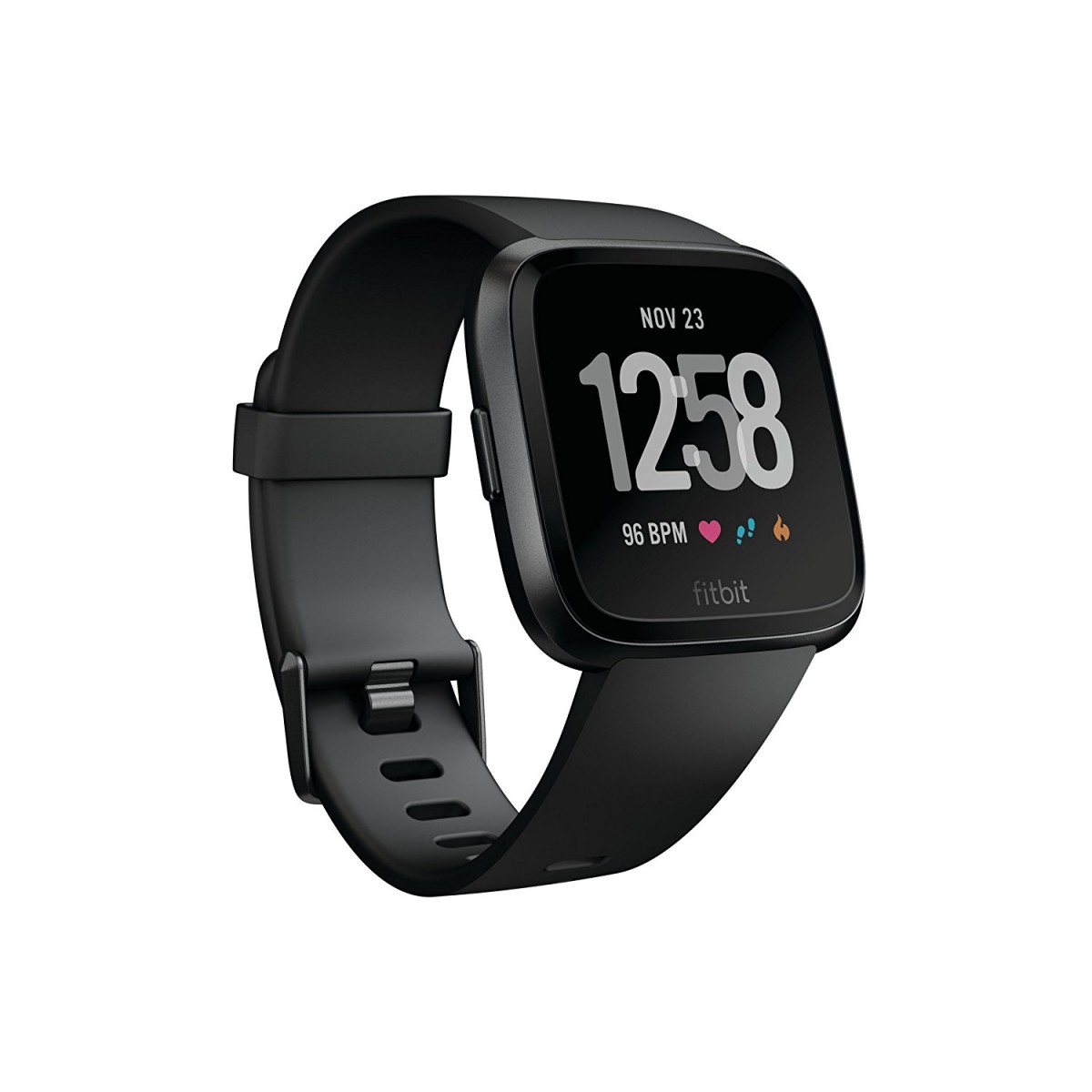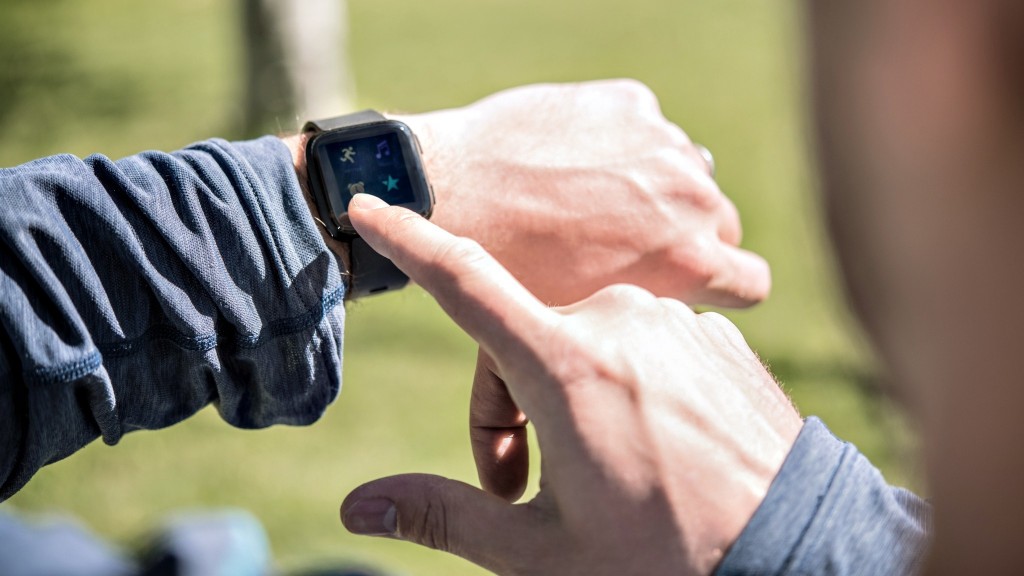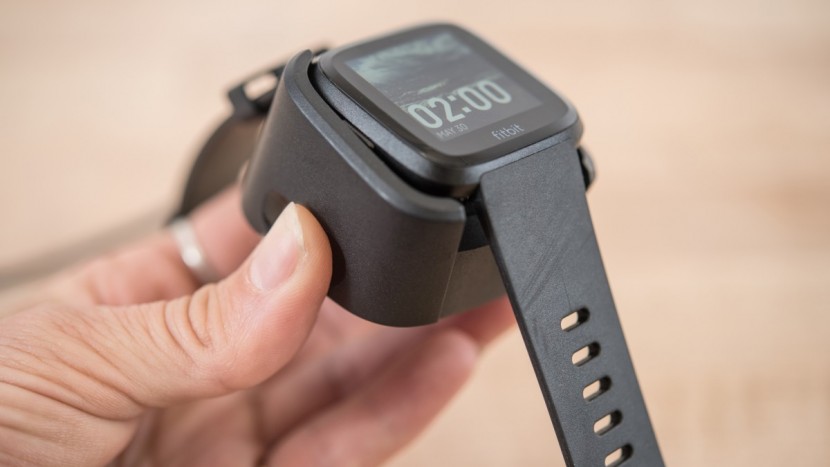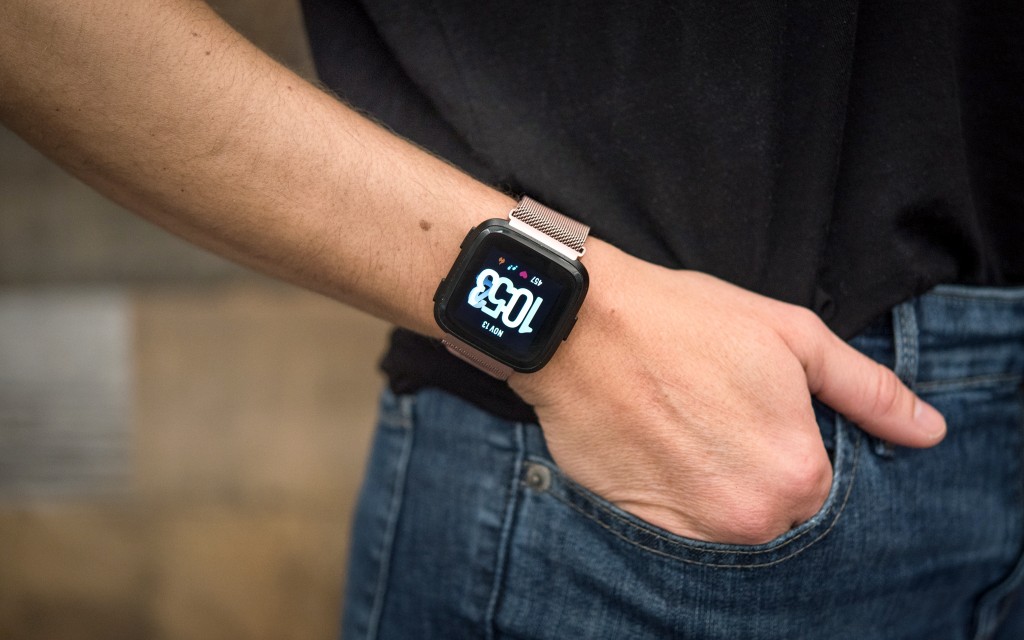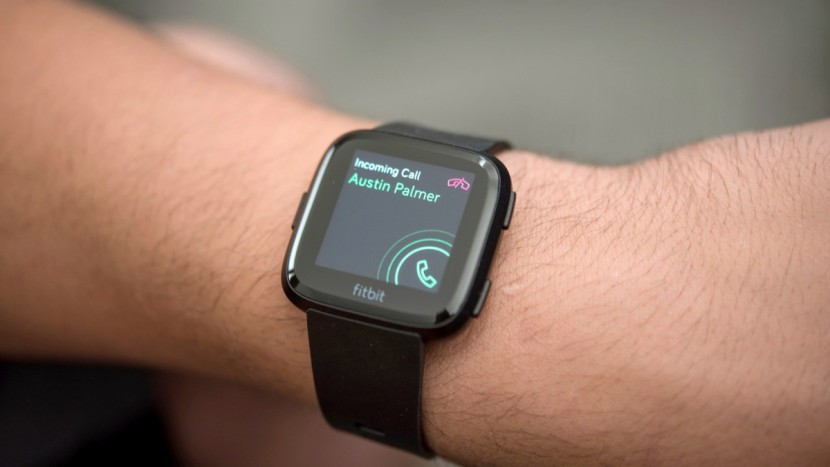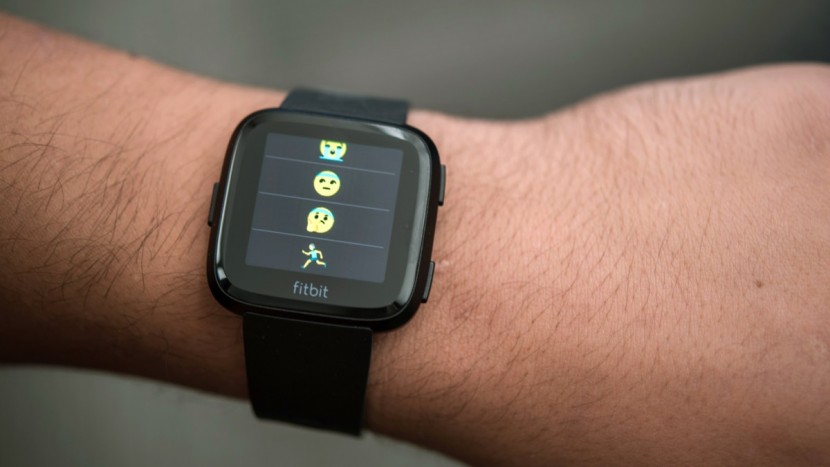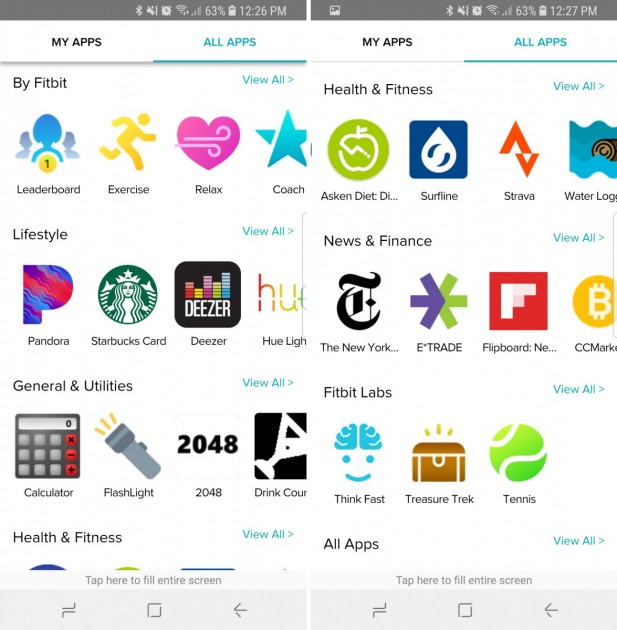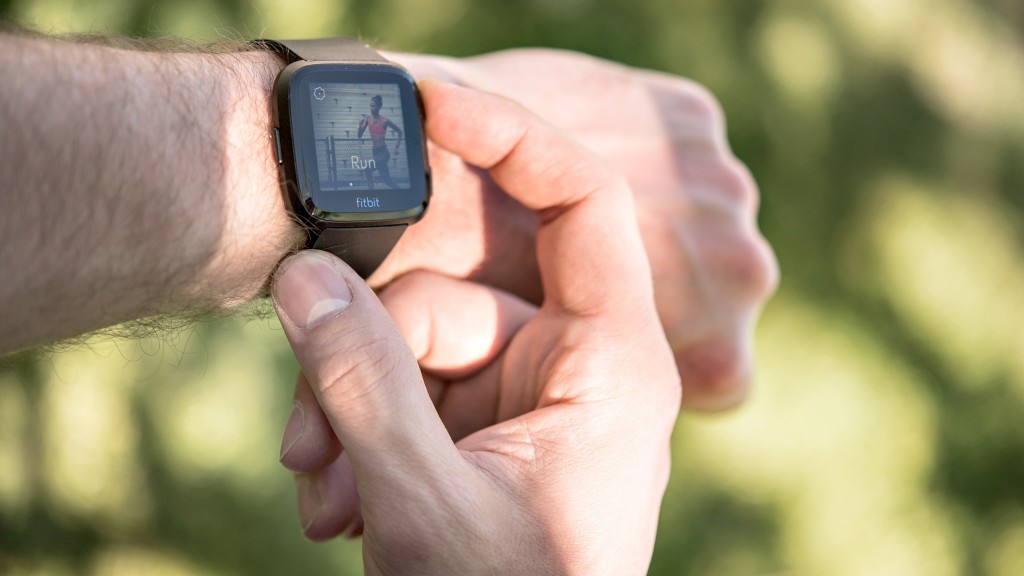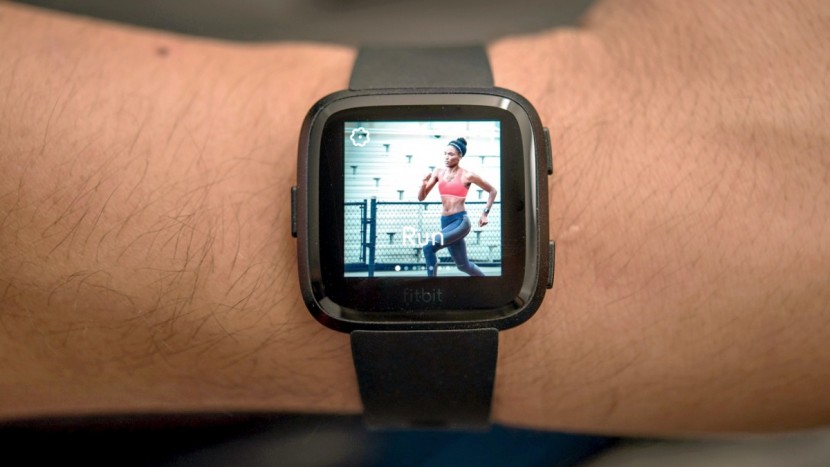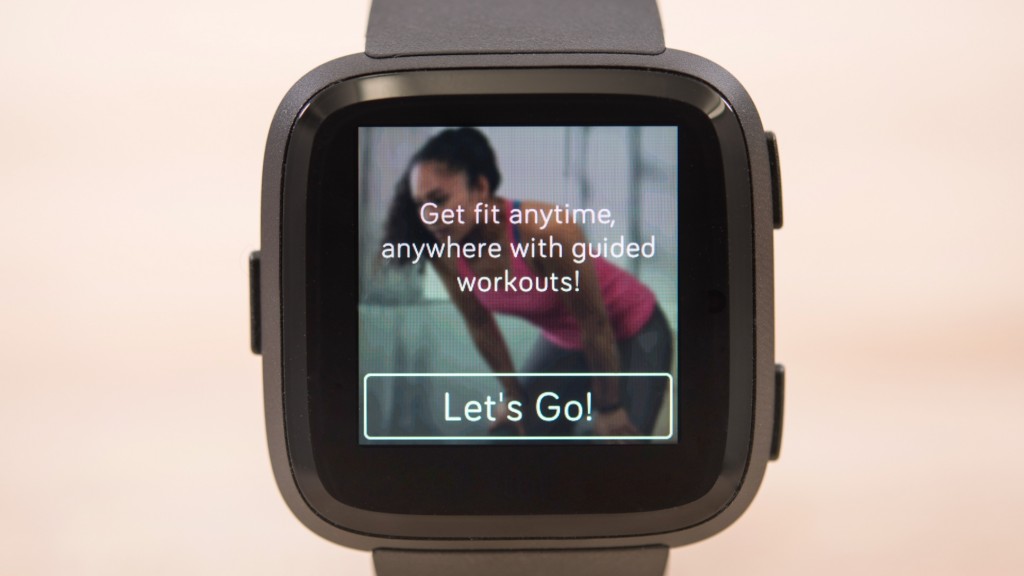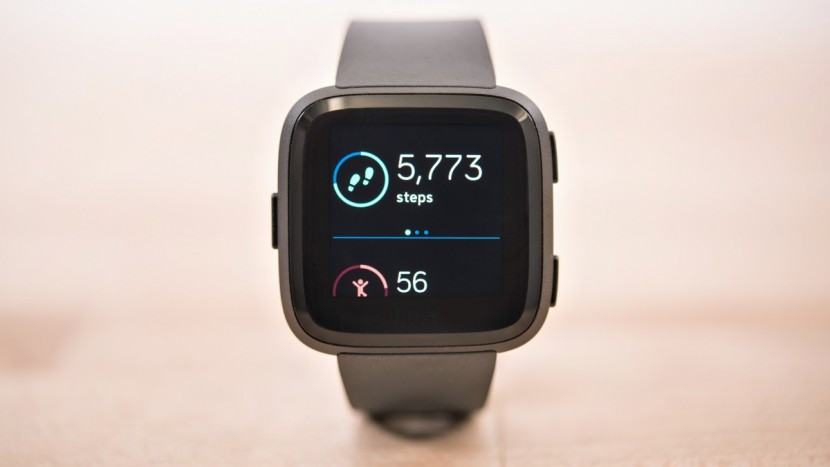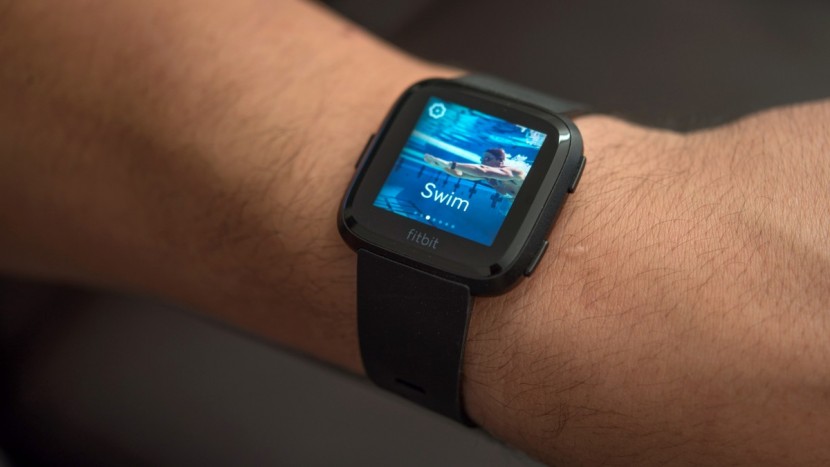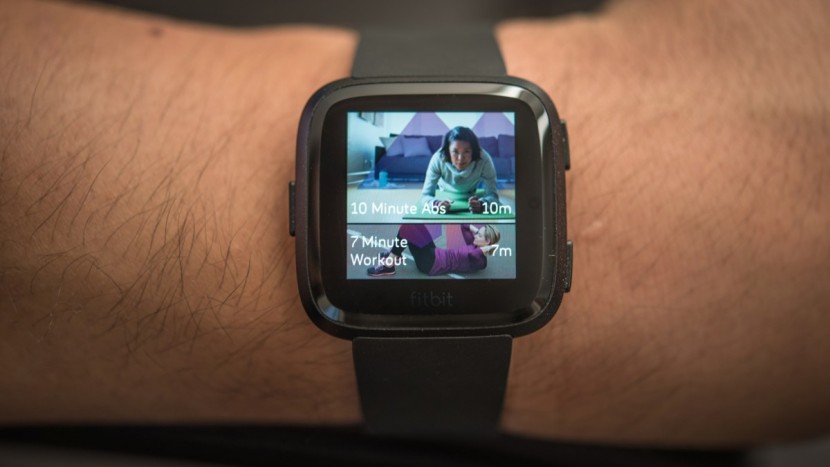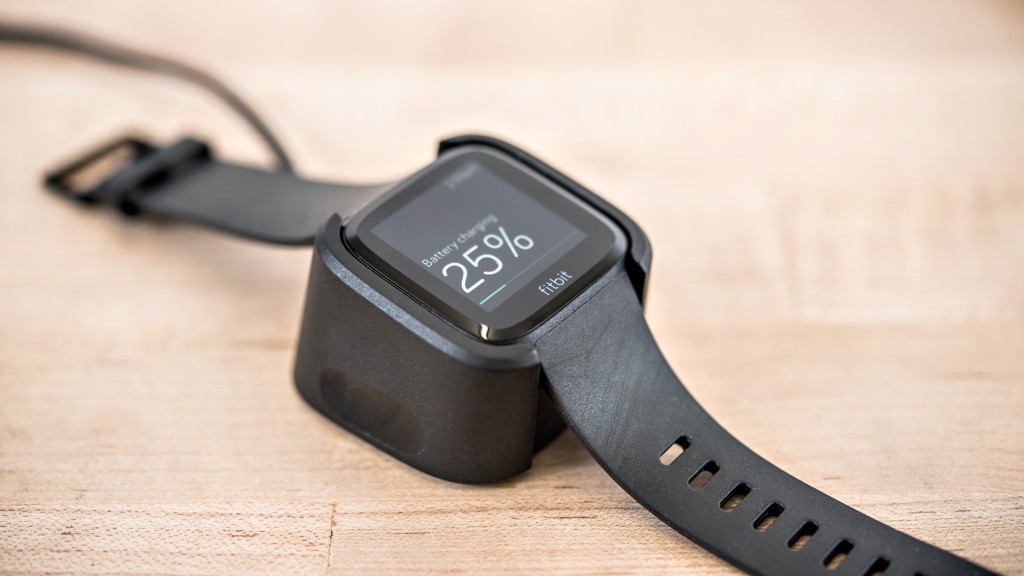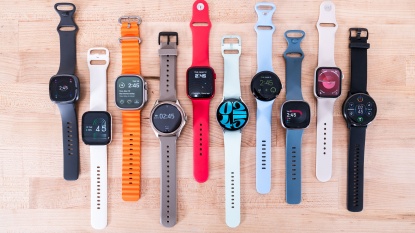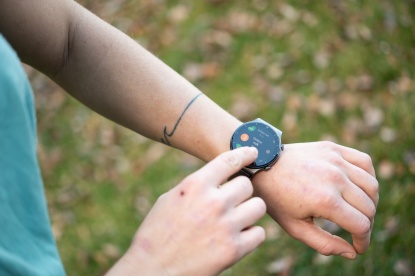Fitbit Versa Review
Our Verdict
Our Analysis and Test Results
Fitbit has released two versions of the Versa: the Standard Edition (which we reviewed) and the Special Edition. The primary differences between the two are the available color selection and the presence of an NFC chip that allows you to complete transactions. The Special Edition retails for about $30, but does give you the ability to complete transactions using Fitbit Pay. This feature is totally worth it if you are the type that wants to leave your phone behind, but if you always have your phone on you, most modern smartphones have the same ability using either Apple Pay, Samsung Pay, or Google Pay, letting you save the $30.
This watch finished right in the middle of the group, matching the performance of the LG Watch Sport and performing slightly better than the Fitbit Ionic. The Versa is a little easier to use than the Ionic and has a slightly more comprehensive set of fitness tracking features, making up for the lack of a dedicated built-in GPS by being slightly more accurate at tracking steps and heart rate in our tests. The LG Watch Sport can't match either of the Fitbit models when it comes to tracking fitness, but it has a much more extensive set of smart features, relying on the Wear OS. The Versa does retail for about $200, with the Ionic selling for around $300.
Performance Comparison
To see which smartwatches really are the smartest and reign supreme, we buy all the most promising models on the market and test them side-by-side, evaluating their performance in five different areas: Ease of Use, Smart Functions, Battery Life, Display, and Fitness Impact. Each of these metrics is weighted based on their overall importance, with the Versa's results discussed below.
Ease of Use
The most important trait of all for these products is being both convenient and easy to use. Smartwatches are meant to be work on a daily basis, so a product that is a huge hassle or even causes you any minor inconvenience will be quickly cast aside. We rated and scored each product on the responsiveness of the touch screen and the ease of using any other input methods the timepiece may have, as well as its water resistance and ease of charging and swapping wristbands. The Versa performed slightly above average in this set of tests, which are responsible for 30% of its final score, earning a 6 out of 10.
The touchscreen on the Versa is about average in terms of response time. It's slightly slower to wake up when you raise your wrist, with a noticeable, half-second delay or so before it illuminates. It also wasn't 100% reliable in our testing, occasionally failing to register that you were looking at it and remaining asleep.
When actually using the touchscreen, the Versa usually responds promptly to your swipes, but would again fail to register them intermittently, requiring you to push harder and swipe repeatedly to accomplish the desired action.
It's relatively easy to swap wristbands, using the standard sliding pin that is becoming more and more prevalent on wearables. It does require a little dexterity, but can be done without tools. The Versa also includes both a small and large wristband with purchase. This watch charges in an extremely secure cradle that make it almost impossible to inadvertently disconnect the watch by jostling it.
This watch is also rated to be water resistant for up to 50 meters, meaning you can wear it while washing your hands or taking a shower and even take it in the pool to track your swimming workouts. Unfortunately, you can't take screenshots of the information on the watch, so you are forced to rely on the Fitbit app to save any data you may want.
Smart Functions
Following Ease of Use, our Smart Functions metric ranked next in terms of significance, meriting 20% of the total score. We looked for the ability to complete transactions, control your music, and answer your phone calls when scoring the smarts of each timepiece, as well as their compatibility with popular apps. Additionally, we also awarded points if the watch has a built-in GPS, rather than relying on the one inside of your smartphone. We found the Versa to be a bit lacking in this department, earning it a 3 out of 10 for its relatively lackluster showing.
The special edition of this watch does let you complete transactions using the Fitbit Pay service, allowing you to load your card info on your watch and use it instead of a card and most credit card readers commonly found in stores using NFC communication. This edition of the Versa retails for about $30 more than the standard, but we feel that the ability to add payment capabilities is well worth it.
You have the standard basic music controls available, allowing you to skip or repeat the track, play or pause your music, and adjust the volume. Music can either be preloaded on the Versa itself using the Fitbit desktop app and output to a pair of Bluetooth headphones for standalone music or the Versa can act as a remote control for the music on your smartphone.
This watch doesn't have a built-in speaker or microphone for voice control or taking calls on your wrist, but it will notify you of an incoming call by vibrating, which you can then answer or reject from the Versa.
It will also notify you of messages, which you can respond to right from your wrist, using either the preset replies or a variety of fitness themed emojis — at least on Android phones, as this wasn't available for iOS at the time of writing.
The Versa is a bit limited in terms of app compatibility, relying on Fitbit's app store, rather than the Apple app store or the Google Play store. Of our sample selection of apps, the Versa only is compatible with Uber, lacking any dedicated apps for Messenger, Spotify, or IFTTT. However, there are Fitbit apps for Starbucks, Strava, Nest, Philips Hue Lights and a few more. The selection of apps is always expanding as more and more developers begin to use the Fitbit App store as well, but many of these apps are more limited in nature than their smartphone counterparts.
Unfortunately, this watch lacks a built-in GPS or standalone LTE connectivity, so you must bring your phone with you while working out if you want notifications and the increased set of fitness metrics GPS offers.
Display
Ranking on par with the smart functionality of each wearable, our set of assessments of the display of each watch also constitute 20% of the total score. We compared the overall quality of the display, as well as its size and shape between each product to score them. Additionally, we also evaluated the difficulty of reading each one in bright light and checked to see if there were always-on and automatically adjusting brightness modes. The Versa improved considerably from its performance in the prior two metrics, earning a 6 out of 10 for its solid display.
The Versa has a 1.34", 300x300 square LCD that is surprisingly nice. While it can't match the Retina displays of the Apple Watch, the Versa has one of the highest-quality displays of the entire group, showing images with much higher resolution and quality than we would expect from a smartwatch.
Unfortunately, it can be a little difficult to read in bright lights, as the white text they chose can easily get washed out. However, we did like that you can turn on an always-on mode for workouts and set the backlight to automatically adjust to the ambient lighting conditions or choose between dim, normal, and bright to match your preferences.
Fitness Impact
For this metric, we compared the accuracy of the step counter, heart rate monitor, and stairs climbed trackers, as well as the different workout profiles available and the stats displayed to determine the scores. Fitbit has its roots in fitness tracking, so we expected the Versa to score quite well in this metric and we weren't disappointed. It scored a 7 out of 10 for this set of evaluations, which are responsible for 15% of its total score.
We found the step tracker to be highly accurate, only differing from the true count by about 5 steps or so over the mile-long walk in both of our trials. It also was very accurate at measuring our heart rate in our tests — much more than its predecessor, the Fitbit Ionic. It matched very well with our control, chest strap heart rate monitor usually being within a few bpm. However, it would struggle a bit if your heart rate was changing rapidly, but all wrist-based optical sensors struggle with this.
There are a variety of preset workout profiles that you can choose from and the Versa will log the distance, speed, time, duration, estimated calorie burn, and average speed. The workout summary also showed the elevation gain, but we never managed to see that in summary in the Fitbit app.
Additionally, the Versa also has a “Coach” app that has a variety of short guided workouts.
Finally, we found the stair tracking to be spot on, with the Versa correctly registering all 10 of the flights of stairs that we climbed in testing.
Battery Life
For the final 10% of the total score, we rated the battery life of each watch, as well as the time it takes for each watch to recharge. The Fitbit Versa finished out the review with a strong showing, earning a 7 out of 10.
We used a set schedule of use for each smartwatch, logging at what time it finally died. The Versa did quite well, lasting for 57 hours, but this can depend on your usage.
It also charges very fast, only taking about 37 minutes to reach 50% and 105 minutes to completely charge.
Value
The Fitbit Versa is a decent value for those that want a more fitness focused smartwatch and are willing to forgo some smart functionality.
Conclusion
Overall, the Versa isn't a bad smartwatch, but struggles to compete with the top offerings from Samsung or Apple. It does decently well across the board with its only major drawback being its limited set of smart functions, but this should improve as more and more apps come to the Fitbit app store. However, the Versa definitely finishes in the middle of the pack and has a ways to go if it wants to claim an award.


